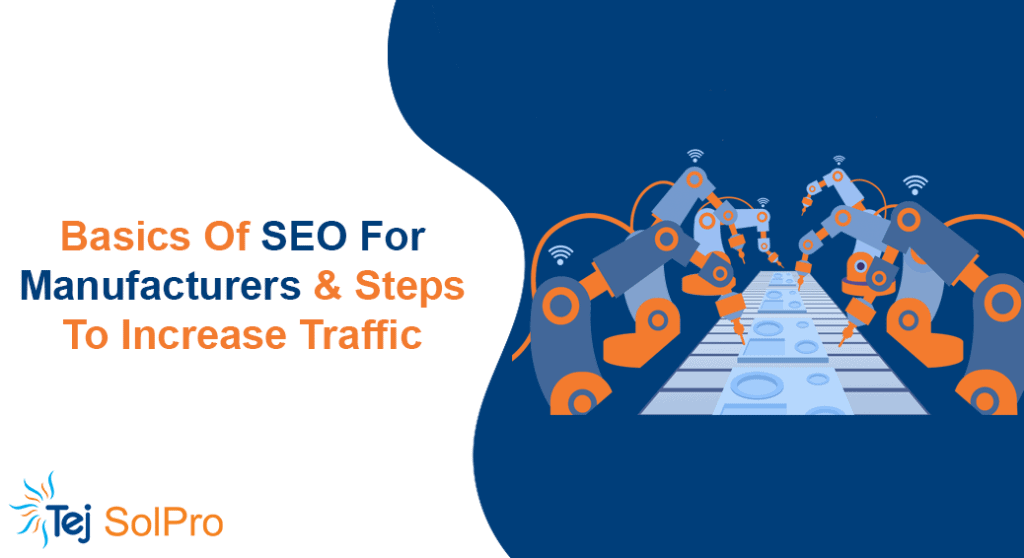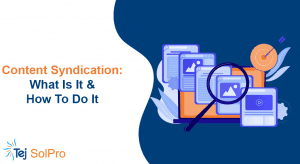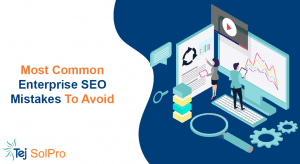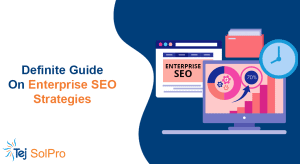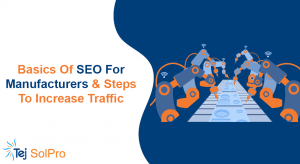In the past, a manufacturer’s success was forged on the factory floor, solidified through handshakes at trade shows, and scaled via established distributor networks. While those pillars remain vital, the path your most valuable customers take to find you has irrevocably shifted to the digital realm.
Today, engineers, procurement managers, and MRO specialists begin their search not in a directory, but in a search bar. This is where a robust strategy for SEO for manufacturers transforms from a line-item expense into your most powerful lead generation asset.
Failing to secure visibility on the first page of Google is the modern equivalent of having an unlisted factory. A targeted approach to SEO for manufacturers is the key to unlocking consistent, high-quality inbound leads.
It ensures that when a prospect searches for a specific part number, a technical capability, or a solution to an industrial challenge, your company emerges as the clear and credible answer.
This guide provides a strategic blueprint for the SEO for manufacturing industry, connecting proven tactics to the ultimate business goal: generating a powerful pipeline of qualified leads and driving sustainable revenue growth.
Contents
- 1 Why Do Manufacturers Need a Specialized SEO Strategy?
- 2 How Does Foundational On-Page & Technical SEO Drive Growth?
- 2.1 3. What Content Strategy Attracts and Converts Technical Buyers?
- 2.2 4. How Do You Convert SEO Traffic into Qualified Leads?
- 2.3 5. How Should Manufacturers Leverage Local and International SEO?
- 2.4 6. Why is Link Building and Digital PR Crucial for Authority?
- 2.5 7. How Do You Choose the Right SEO Partner?
- 2.6 Conclusion: Your Path to Digital Dominance
Why Do Manufacturers Need a Specialized SEO Strategy?
A specialized SEO strategy is essential because your audience, engineers, designers, and purchasing agents operates with a unique, technical search intent within a long and complex B2B buying cycle.
Generic SEO tactics simply fail to connect. Effective SEO for manufacturing companies requires a deep understanding of this journey to translate your technical expertise into digital visibility, trust, and ultimately, high-quality leads.
Unlike mainstream marketing, industrial SEO marketing is not about quick conversions. It’s about strategically positioning your company as a trusted resource at every critical stage of the procurement process:
- Awareness: An R&D engineer searches for a solution to a complex design problem.
- Consideration: They meticulously compare technical specifications and material compatibilities from a handful of potential suppliers found online.
- Decision: A procurement manager seeks quotes (RFQs) from a shortlist of qualified vendors who have demonstrated clear expertise and authority.
Your SEO strategy must anticipate and answer the questions at each of these stages. Without this foundational presence, you are functionally invisible to a vast market of potential buyers who are actively searching for your exact capabilities.
How Does Foundational On-Page & Technical SEO Drive Growth?
A solid technical foundation drives growth by making your website flawlessly accessible to search engines and highly usable for your technical audience. This ensures your valuable content and detailed product pages can be discovered, indexed, and ranked effectively, forming the essential first step in the lead generation funnel.
This is the bedrock of SEO for manufacturers. If search engines struggle to crawl or comprehend your site’s structure, even the most brilliant content will fail to perform.
- Website Architecture & User Experience (UX): Your site must be logically structured, mobile-responsive, and fast. An engineer on a deadline will abandon a slow website before they find the CAD file they need.
- Keyword Optimization for Technical Queries: Move beyond broad head terms. Optimize your product and capability pages for specific part numbers, material compositions, machine specifications, industry certifications (e.g., “AS9100 certified precision machining”), and the technical questions your sales team answers every day.
- Schema Markup for Products & Specifications: This is a high-impact tactic for manufacturers. Implementing Product Schema provides Google with structured data about your products (SKUs, dimensions, material properties), which can unlock “rich results” in search, making your listings stand out.
- Image and Video SEO: Don’t overlook your visual assets. Optimize high-resolution product images, diagrams, and demo videos with descriptive file names, titles, and alt text. A search within Google Images for a specific component could be a lucrative source of traffic.
- Example in Action: A manufacturing company partnered with Tej9 to revamp their online presence. By launching a new website and implementing a targeted SEO strategy including multilingual product pages and niche-specific keywords, they achieved over 800% growth in organic traffic within a year. This approach also expanded their reach into markets like Russia and the Middle East.
3. What Content Strategy Attracts and Converts Technical Buyers?
The most effective content strategy for manufacturers is one that focuses on demonstrating expertise and solving complex problems. To build trust with a discerning, analytical audience, you must deliver detailed, accurate, and valuable technical content, not just marketing fluff.
Think of your content as the engine of your SEO for manufacturers efforts. It’s how you prove your authority and earn a prospect’s trust long before they ever contact sales.
- In-Depth Blog Posts & Articles: Address common industry challenges, publish material application comparisons, or explain the nuances of complex manufacturing processes.
- Detailed Case Studies: Showcase how you solved a specific, challenging problem for a client. Detail the initial challenge, your engineering process, and the measurable results. This is the most powerful form of social proof.
- Digital Resource Hub: Transform your website into an indispensable resource for engineers. Offer downloadable CAD files, comprehensive spec sheets, material compatibility charts, and detailed engineering guides.
- High-Quality Video Content: Develop facility tours, show complex machinery in action, and provide detailed product demonstrations. A well-produced video can convey technical credibility far more effectively than text alone.
4. How Do You Convert SEO Traffic into Qualified Leads?
Attracting the right audience through SEO is the first half of the equation; converting that traffic into measurable business opportunities is the second. A successful strategy for lead generation for manufacturers through SEO must include a clear framework for.
Here’s how to bridge the gap between a website visitor and a qualified sales lead:
- Strategic Calls-to-Action (CTAs): Your website should guide visitors toward action. Place clear, compelling CTAs like “Request a Quote,” “Speak with an Engineer,” or “Download a Spec Sheet” on all relevant pages. Don’t make prospects hunt for a way to contact you.
- High-Value Gated Content (Lead Magnets): The “Digital Resource Hub” mentioned earlier is your lead generation powerhouse. Offer your most valuable content, in-depth whitepapers, exclusive webinar recordings, proprietary data sheets, or ROI calculators, in exchange for a visitor’s contact information. This is a direct trade of your expertise for their interest.
- Optimized RFQ & Contact Forms: Make your forms simple and frictionless. Only ask for the information you absolutely need to qualify a lead. Long, complicated forms are a major deterrent and will cost you valuable conversions.
- Conversion Rate Optimization (CRO): Continuously analyze and improve the user experience on your key landing pages. Small changes to a headline, form layout, or CTA button can have a significant impact on the percentage of visitors who convert into a lead.
- CRM Integration: Ensure every form submission is automatically fed into your CRM system. This enables prompt follow-up from your sales team and allows you to accurately track which SEO efforts are generating the most valuable leads.
5. How Should Manufacturers Leverage Local and International SEO?
Manufacturers must use local SEO for manufacturers to dominate their regional market and attract valuable partners, while simultaneously leveraging international SEO for manufacturers to manage a global brand presence, generate leads, and support international distribution networks.
Your geographic footprint, both locally and globally, is a critical component of your SEO strategy.
- Local SEO for Manufacturers:
- Google Business Profile (GBP): A fully optimized GBP listing is non-negotiable for attracting local business. Ensure it includes your correct address, service areas, capabilities, hours, and high-quality photos of your facility.
- Cultivate Online Reviews: Positive reviews from regional partners and clients build immense local trust and authority.
- Location-Specific Service Pages: If you have multiple plants or serve distinct regions, create dedicated website pages (e.g., “Aerospace Manufacturing in Southern California”). This is a core service provided by any competent manufacturing SEO company.
- International SEO for Manufacturers:
- Hreflang Tag Implementation: If you maintain versions of your site in different languages or for different countries, hreflang tags are essential. They tell Google which version to show to which users, preventing duplicate content issues and ensuring a better user experience.
- Localized Keyword Research: Do not simply translate keywords. You must research how engineers in Germany or Japan search for your capabilities, as terminology, standards, and search behavior can vary significantly.
- Country-Code Top-Level Domains (ccTLDs): For significant international markets, consider using domains like .de (Germany) or .co.uk (UK) to build maximum trust and authority within that specific region.
6. Why is Link Building and Digital PR Crucial for Authority?
In the eyes of Google, earning backlinks from reputable, relevant websites is the strongest signal of your company’s authority. A strategic link-building campaign is crucial because these “votes of confidence” from other sites significantly boost your own website’s credibility, search rankings, and by extension, its lead-generating potential.
In the highly competitive SEO for manufacturing industry, establishing digital authority is paramount.
- Feature in Leading Industry Publications: Contribute expert articles and insights to trusted trade magazines and online journals.
- Engage with Industry Associations: Actively participate in major associations (e.g., National Association of Manufacturers). This often leads to features, directory listings, and highly valuable backlinks.
- Leverage Your Supply Chain: Ensure your key partners, suppliers, and distributors are linking back to your website as a preferred or certified partner.
7. How Do You Choose the Right SEO Partner?
Choosing the right partner means selecting a manufacturing SEO company or professional who understands the nuances of your industry, speaks the technical language of your customers, and is squarely focused on generating qualified RFQs and sales opportunities, not just vanity metrics like traffic.
When seeking an SEO service for manufacturing industry, ask any potential partner these critical questions:
- Can you share case studies from other industrial or manufacturing clients?
- What is your process for conducting keyword research for highly technical audiences?
- How will you measure and report on the ROI of our SEO investment in terms of leads and RFQs?
- How do you plan to build our website’s authority within our specific niche?
Conclusion: Your Path to Digital Dominance
In today’s competitive market, implementing a sophisticated strategy for SEO for manufacturers is no longer optional—it is the foundational investment for future growth. By building a robust technical foundation, creating content that speaks directly to the needs of technical buyers, and engineering clear pathways for lead generation, you transform your website from a simple digital brochure into a powerful, 24/7 lead generation engine.
The journey to the top of the search results requires expertise, persistence, and a strategic approach tailored to the unique challenges of your industry. By embracing these principles, you can enhance your visibility, attract high-value clients, and build a dominant digital presence that will fuel your company’s growth for years to come.

